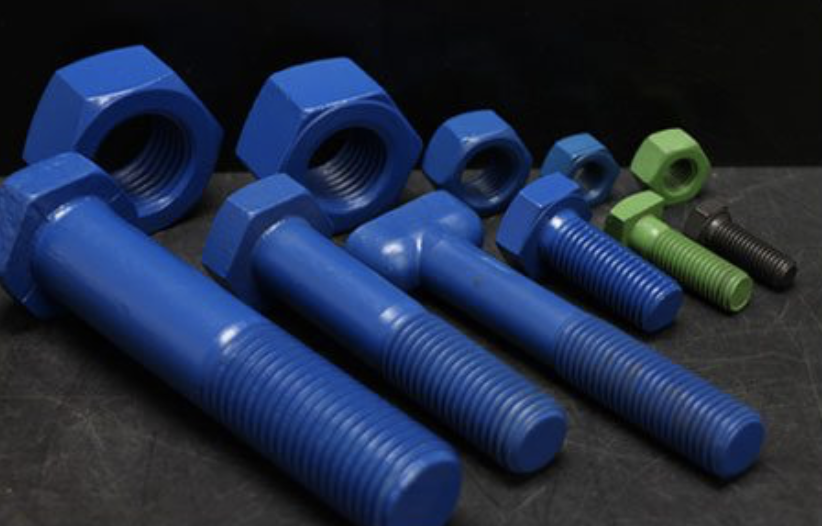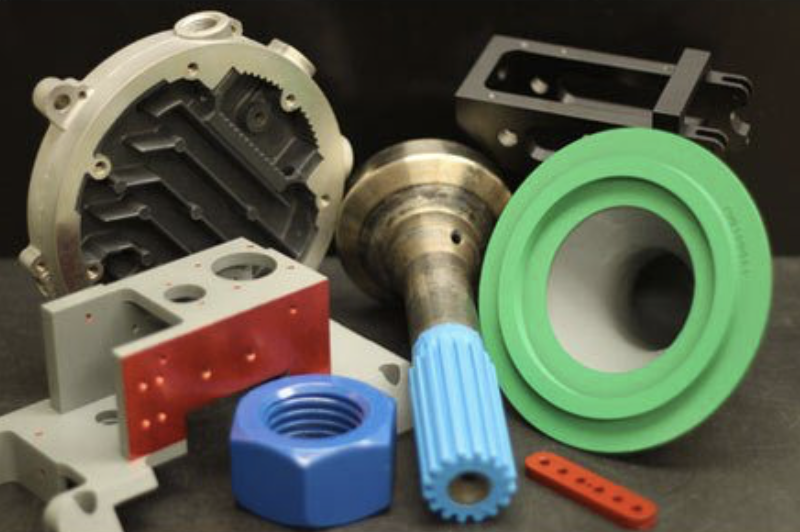
How to Coat Nuts & Bolts & Other Fasteners Correctly
What you need to know about breakout torque and salt-spray testing.
Fasteners that are coated for heavy industry tend to be coated for a very good reason. That’s because the environments where these nuts and bolts hold metal pipes and plates together can be very harsh. They are typically underwater, underground, or exposed to water frequently in industries such as oil & gas and utilities.
Fluoropolymers are the best option for coating nuts and bolts because they can provide corrosion protection while also offering consistency in both the tightening and loosening of the nuts or bolts. The durable, thin coatings and reliable performance of fluoropolymers make them ideal for chemical, corrosion, and abrasion resistance.
Breakout Torque, Lubricity & Viscosity
The loosening, or “breakout,” torque of a nut on a bolt is critical for when the associated part needs to be serviced. Bolts with corrosion typically seize up, and then a torch is required to loosen or remove the nuts. The old methods of electroplating or zinc coating just don’t cut it anymore.
PTFE fluoropolymers (Teflon™ coatings or Xylan® coatings) have become a popular choice for fasteners because of their “lubricity” and color options. Lubricity means that the surface retains a certain release capability, even at high torque. Many industries look for long-term fastener protection while having uniform breakout torque release. Color-coding is important in utilities such as waterworks to identify the function of the pipe, for instance, that requires servicing.
One of the most important factors in coating fasteners is making sure that the viscosity of the coating is correct. Sometimes you have to add enough thinner to achieve the exact viscosity that will coat the best and spread evenly across bolt and nut threads.
Fastener Surface Preparation & Pretreatment
Preparation and pretreatments are always a key factor in coating fasteners correctly for maximum service life. A well-blasted surface is critical for creating the required profile needed for optimal coating adhesion. Another important step is a complete degrease using a combination of both a thermal degreasing process and a chemical wash to insure a well-prepped surface.
And for superior corrosion protection for fasteners, use a zinc phosphate pretreatment process. This pretreatment is tightly controlled and monitored so that the precise amount of zinc is deposited onto each part’s surface every time.
During application, it’s important to coat the thread valleys and sidewalls evenly. This might require hitting the nuts and bolts from a number of angles so there is not excessive buildup in the thread valleys.

Thickness Test & Salt-spray Test
Accurate coating thickness is crucial to a fastener’s lifespan. Thickness testing of the fasteners can be performed by checking the bolt heads or any other flat surface available. You can also perform lab tests on random pieces to make sure you’re staying in the proper thickness range consistently.
Another useful test for nuts and bolts is a “salt-spray test” that shows how well your coated nuts and bolts will perform under harsh conditions. Crest uses an in-house salt spray test that tests parts over 1,500 hours (62.5 days).
Decades of Experience
Because there are so many factors to consider with fastener coatings, gun adjustment and application experience is invaluable. We have many experts here at Crest Coating, who have decades of experience in powder coating in Orange County, CA, and we pull knowledge from many different areas. Ensure maximum durability and corrosion resistance for your fasteners with fluoropolymer coatings. Contact us today to learn the best coating solutions for your industry needs!